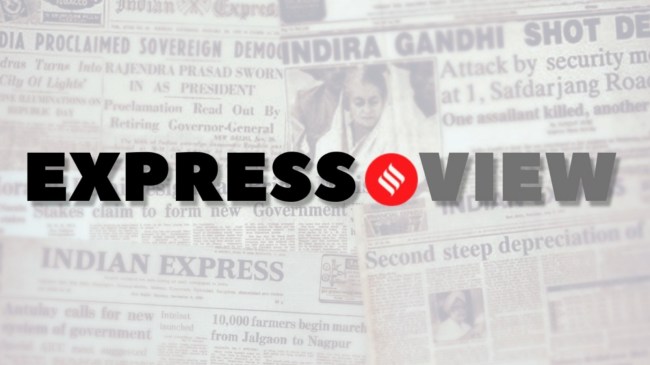Opinion One year after Sheikh Hasina’s exit, where is Bangladesh today?
Today, Bangladesh is gripped by a politics far removed from the aspirations that fuelled her ouster
 There is no denying that the Hasina regime was flawed, characterised, especially towards its end, by its disregard for democratic values. But the rise of extremist forces under Yunus’s watch strains the secular fabric of the Mujibist order.
There is no denying that the Hasina regime was flawed, characterised, especially towards its end, by its disregard for democratic values. But the rise of extremist forces under Yunus’s watch strains the secular fabric of the Mujibist order. On August 5, 2024, when the longest-serving prime minister of Bangladesh had to be airlifted from Dhaka to Hindon Air Force Station near Delhi, many of the student protesters who roared in celebration were looking forward, arguably, to a better future, a more democratic order. Yet, one year after Sheikh Hasina’s uninterrupted 15-year rule was brought to an end during what is now known as the July Revolution, Bangladesh finds itself gripped by a politics far removed from the aspirations that fuelled her ouster.
Despite the promises of Muhammad Yunus, Chief Advisor to the Interim Government, the past year has witnessed a surge in religious extremism and a breakdown of the rule of law. While Awami League leaders have been jailed en masse, hundreds of individuals accused or convicted in militancy-related cases have been released, and many others have escaped from jail. The ancestral home of Bangladesh’s founding president, Sheikh Mujibur Rahman, along with other symbols of the old regime, was reduced to ashes. Bangladesh’s pluralistic culture, too, has looked besieged. The Bangladesh Hindu Buddhist Christian Unity Council, the country’s largest minority rights group, has repeatedly flagged violence against minorities on the watch of the Yunus government. The US Commission on International Religious Freedom, in its latest report, noted that “systematic pressure on religious minorities continued to generally worsen.” In May, thousands of Hefazat-e-Islam supporters rallied in Dhaka to protest proposed recommendations aimed at ensuring equal rights for Muslim women. Government figures show that violent crime has increased. On top of this is an unstable economy, weighed down by slowing growth and mounting public debt.
There is no denying that the Hasina regime was flawed, characterised, especially towards its end, by its disregard for democratic values. But the rise of extremist forces under Yunus’s watch strains the secular fabric of the Mujibist order. Only a free and fair election can show the way forward in Bangladesh. Yunus has announced that the election could be held in April 2026, and in his Tuesday afternoon speech, unveiled the July Declaration which affirms a commitment to “rule of law, human rights, and moral values”. It is hoped that a newly elected government will embody these principles and fulfil the aspirations of the Bangladeshi people. Delhi, for its part, must keep communication channels with Dhaka open, engage all political actors, and work to insulate bilateral ties from the ebb and flow of domestic politics.



